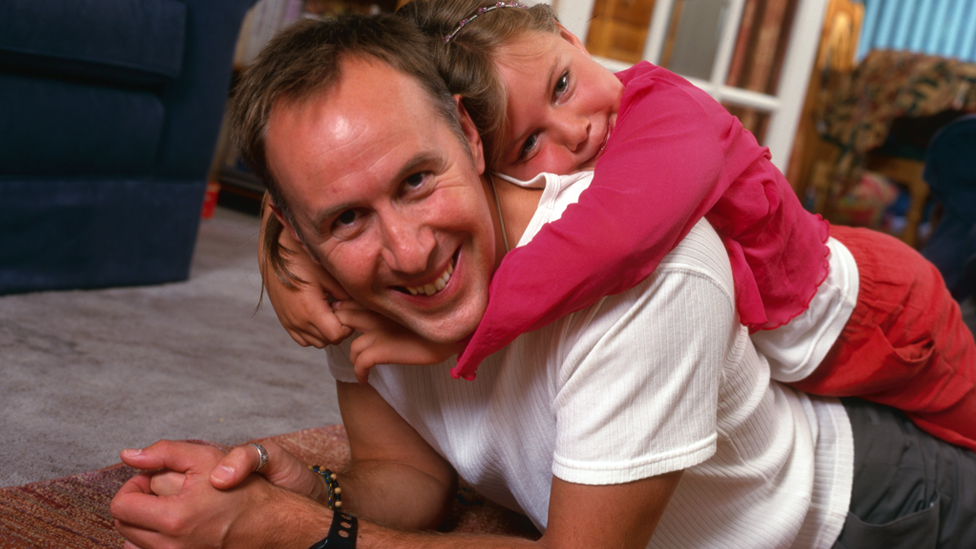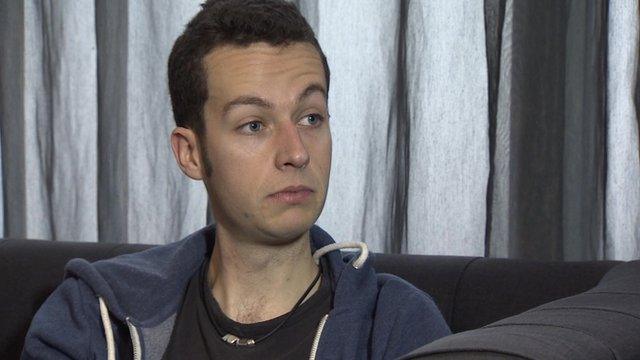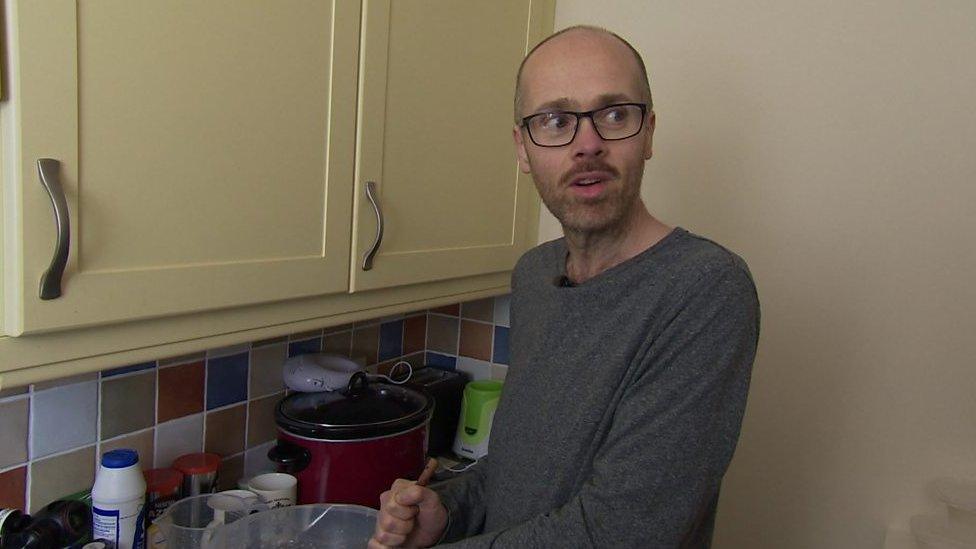Bulimia and me: From super fit to a walking stick
- Published

Steve James as a young father with daughter Rose
Eating disorders have a higher death rate than any other mental illness and are estimated to affect 1.6 million people in the UK - 400,000 of whom are men. In BBC Wales' Week In Week Out programme rugby referee Nigel Owens talks to men and boys in Wales about the impact of anorexia and bulimia.
Among them is BBC Wales sports journalist Steve James.
Think middle-aged fella. Think Shed.
You're imagining a man cave, a bloke's bolt-hole where he can potter and listen to the rugby, right? Think again.
Think eating disorder.
You're picturing a young adult, probably female, right? Think again.
I'm a 50-something man and to me "Shed" stands for Service for High Risk Eating Disorders.
I was referred to the Cardiff-based mental health team in 2010. A previously super-fit man needing a stick to walk.
How come? It's a long story. Years of mental health challenges, of debilitating depression, anxiety and worse.
Forget cosy man shed. Think dark cave with even darker thoughts, and all the time putting on "a brave face" for the world.

Find out more
Nigel Owens: Bulimia and Me on BBC One Wales and BBC iPlayer on 24 July at 20:30 GMT
Links to organisations offering support on eating disorders below or visit BBC Action Line
For help and information on eating disorders visit BBC Advice

Nobody knows what goes on behind the façade.
Not eating can be the only sense of control. It can be self-harm. It can be a necessity to feed a false self-image. One that even when your rational side knows you are wrong, the inner demons tell you is right.
It can be exhilarating. Yes it can actually feel really good. And then it can be misery, driving another descent to the depths of despair.
The NHS gets lots of criticism for mental health care, and rightly so.
Discussing it with your GP, which many - especially us men - might really struggle to do, and you'll probably get a prescription for anti-depressants.
Steve James: Eating disorders and me
But if you want - need - counselling, well then prepare to wait at least six months.
That's like ringing the fire brigade to tell them there's smoke coming out of your kitchen and being told they can come round a week on Wednesday.
Often it takes a crisis before the NHS shows just how good it can be.
What we need is a bigger "Shed". Or more "Sheds" - "Drop-in Sheds", maybe. There needs to be more help and prevention. We need more awareness, more understanding, less stigma.
For some people the brain can go awry just like a kidney, a lung or a heart. Asthma, diabetes, cancer, mental health problems, they are all just the same. And they can happen to anyone. Young or old, male or female.
I'm not in crisis right now. But just like someone who has to live with arthritis or any another chronic disease I have to manage my condition.
I have good days and bad days, and sometimes I struggle to keep it under control.
I could keep all of this to myself. Instead I want to tell people not to dismiss those who suffer like me, because some people do.
I want to tell people who suffer like me they are not alone, there is help, there is support.
I want to tell them not to be ashamed. Not to face it alone. And I want to tell people to forget stereotypes and preconceptions. Men have eating disorders. Even "old" men like me.
I have decided to give my own personal story, hoping that my experiences and honesty could help other sufferers and break down stigma.
- Published1 November 2016

- Published2 December 2014

- Published4 May 2017
